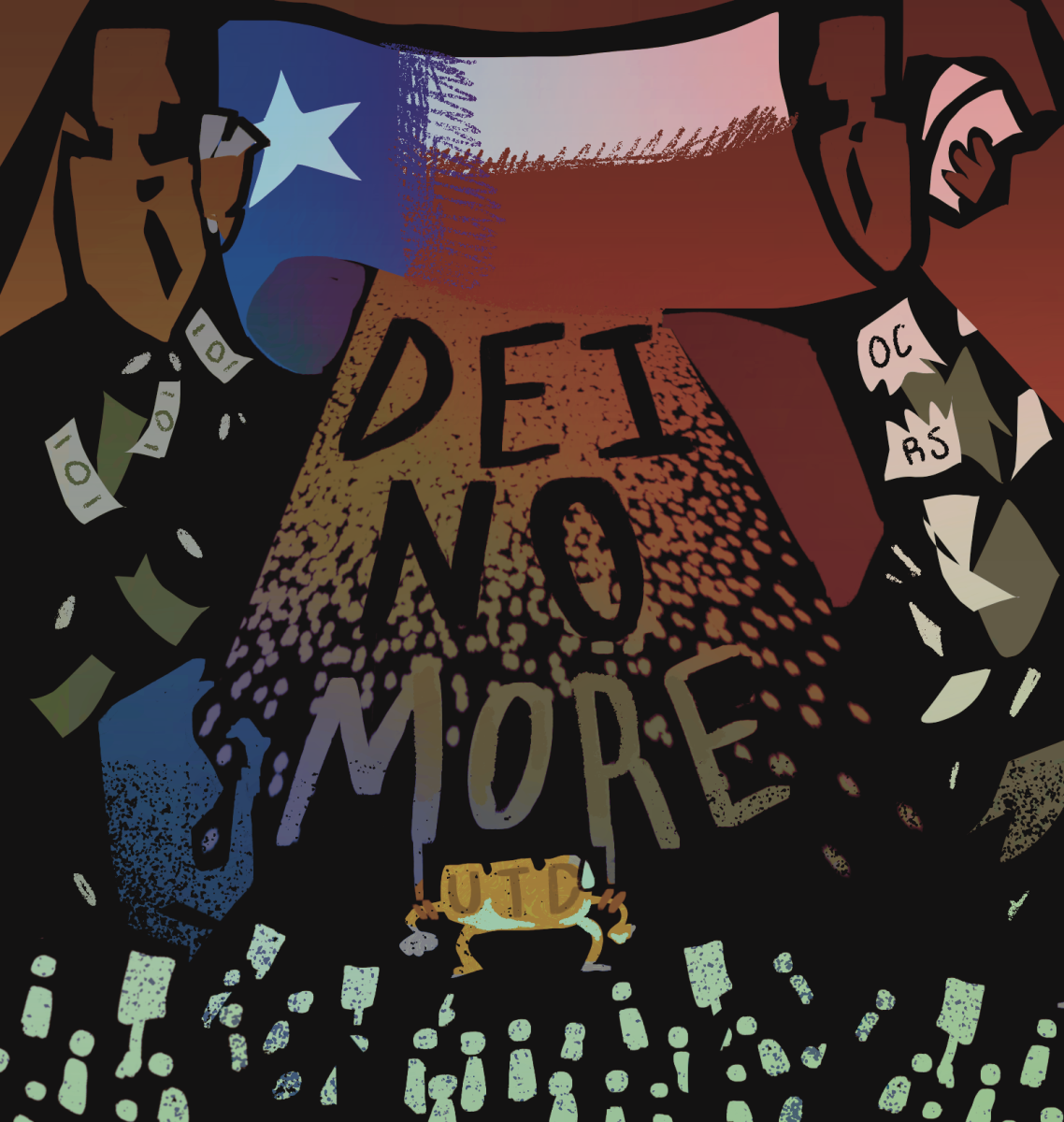Editor’s Note: The name of Jose was changed to protect his identity.
Jose was two years old when he boarded a bus bound for the U.S.-Mexico border. His grandfather fed him grapes in the dark to stave off hunger during the 12-hour journey.
“That’s the oldest memory I have,” he said. “That’s the only memory of Mexico I have.”
He fell asleep and woke up on the other side of the border in a car driven by coyotes — smugglers who facilitate migration across the border — travelling toward Dallas, where Jose’s father, who had migrated earlier, was waiting. Since then, Jose grew up in the Metroplex under the looming threat of deportation.
Now a UTD junior studying computer science, Jose received work authorization and completed an internship as a recipient of the Deferred Action for Childhood Arrivals program, an Obama-era policy implemented in 2012 that allows certain individuals who entered the country illegally as minors to obtain renewable two-year work permits and grants exemption from deportation.
“I remember feeling relieved because I could actually use my education for something. My initial thought was I would have to graduate here and then move to Mexico,” Jose said. “I had a vision of my future. It wasn’t just a big blur.”
But now his future, like those of nearly 800,000 other DACA recipients, lies in limbo.
***
The Trump administration announced its intent to terminate the DACA program on Sept. 5, claiming that undocumented migrants were usurping jobs from native-born citizens and driving down wages.
“We knew it was coming,” said Mercedes Molina, an international political economy junior and president of UTD’s chapter of the League of United Latin American Citizens. “Our largest frustration at the moment is that we feel like we’re being used as political pawns.”
With the rescission of DACA, student groups on campus are calling on their local representatives to pass the DREAM Act — a bipartisan proposal intended to provide undocumented immigrants with a path to permanent residency — by organizing letter-writing campaigns.
“That would be the best-case scenario to come out of this,” said Ociel Galindo, a historical studies sophomore and interim president of the Mexican American Student Association. “The fact that it’s a bipartisan piece of legislation is even better.”
***
Growing up, Jose made efforts to conceal the marks of his Mexican heritage — specifically, the mark on his upper right arm. In Mexico, the government requires newborns to be vaccinated against tuberculosis, which leaves a visible scar. In Jose’s predominantly Hispanic middle school, the scar became a source of contention.
“The funny thing was the U.S.-born Mexicans would be racist towards the Mexican-born Mexicans,” he said. “(The scar) was the first sign. That’s how you identify others who were born in Mexico. I remember kids in middle school hiding it during gym, especially the girls because they had to wear shorter-sleeve shirts.”
Though Jose’s parents told him in the fourth grade that he was born in Mexico, it wasn’t until high school that he began to make sense of his immigration status.
“To me, it didn’t mean anything,” he said. “It didn’t matter to me until I was old enough to do the research myself and I realized I was in a different situation.”
After enrolling in the DACA program, Jose received a social security number and was able to intern at a local software development firm the summer after his sophomore year of high school.
When it came to the college application process, however, his options were limited. Several scholarships required citizenship or permanent residency for consideration. UTD’s Academic Excellence Scholarship was among those that did not take immigration status into account. Jose said one of the deciding factors in choosing UTD was its inclusive environment.
“I do feel welcome on this campus simply due to the diversity. There’s great people all around,” he said. “They all come together to form this really welcoming community for minority groups.”
There aren’t clear numbers on how many UTD students receive DACA protections. A 2016 report by U.S. Citizenship and Immigration Services revealed around 200,000 individuals in Texas were approved for participation in the DACA program by the third quarter of 2016.
Although several of his friends at UTD have benefitted from the program, it was important to make the distinction between the work of the individual and the provisions of the program, Jose said.
“It was their hard work and their grades and their efforts, not the effort of DACA,” he said. “DACA was simply a key into a whole world of possibilities, but they’re the ones who brought themselves to the door.”
***
UTD President Richard Benson released a statement on the day of Trump’s announcement reiterating the university’s commitment to protecting DACA students while noting its obligations to follow the law.
“I supported DACA because the United States needs bright, talented individuals,” Benson wrote. “Students who have been raised and educated here represent America at its finest.”
Molina and members of LULAC met with Benson at the start of the school year to discuss issues such as DACA and Senate Bill 4, a law requiring local police to enforce federal immigration law. Molina said the administration was receptive to their concerns, agreeing to include a list of immigration resources in safe zones across campus.
In response to the Trump administration’s decision, LULAC and MASA members handed out flyers on the Plinth with instructions on how to get in touch with local representatives. They also organized a rally on Sept. 13 near the Spirit Rocks to stand in solidarity with undocumented students. Attendees painted the rocks with Spanish slogans and created signs to protest the decision.
“We couldn’t have asked for a more supportive community at the time,” Molina said.
***
Jose planned to pursue a career in software development after graduation. Now, with his future uncertain, Jose might be forced to move back to Mexico once his work permit expires. From there, he said he hopes to save money to buy his family a home and eventually move to Canada or Europe.
For now, Jose said he’s focused on the matter at hand.
“We’re going to keep fighting for it. We belong here,” he said. “They can kill our work permits and they can kill everything we’ve worked for, but they can’t kill our love for this country.”













